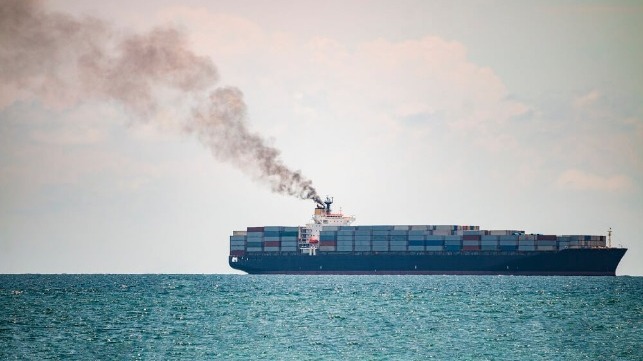Global Maritime Forum Says Shipping is "Off Track" on Emissions

The Global Maritime Forum warns that the industry is not making enough progress on decarbonization and risks "falling irreparably behind its climate goals" if it does not change course - and fast.
In a new report, the forum says that most actors across the industry are moving too slowly to meet the IMO's 2030 target of running five percent of the fleet on zero-emissions fuel. Time is running out to change course, the forum said, and the trajectory set by mid-decade will determine whether the 2030 timeline will be met or not.
The forum's report - produced in conjunction with the UCL Energy Institute, UN Climate Change High-Level Champions, and the Getting to Zero Coalition - acknowledges that multiple actors all have to play a role in the transition, not just shipowners or fuel manufacturers. But the majority of actors across the shipping "ecosystem" are not on track to meet the agreed five-percent target.
On the fuel demand side, the much-publicized spate of new orders for methanol- and ammonia-capable vessels will only provide a quarter of the zero-emissions fuel consumption required to meet five percent target. On the fuel supply side, the capacity isn't available either, as many shipowners, suppliers and OEMs have complained. The current development pipeline for green fuel production plants will deliver less than half of the energy needed to meet the international target.
"The 5% target is considered the critical mass at which the infrastructure, supply chains, and technology that support zero-emission fuels mature and enable exponential growth. This means if the five percent target is not achieved, it could jeopardize the industry's entire 2050 net-zero goal," warned the authors.
13 out of 35 actions for delivering on the 2030 target are currently "off track," and several are especially important. The fuel supply pipeline is too small, though the forum reports that there are glimmers of new project development activity that could solve the shortage. Vessel demand is too low, and more green-fueled ships are needed. Funding for zero-emissions projects has slowed, and financing for fossil-fueled tonnage has increased, moving the shipping finance sector "off track."
As others have noted, much of shipping's green transition will ultimately come down to regulatory action at IMO, where member states will soon decide whether to impose a global price on bunker fuel and set a technical standard for fuel carbon content. "In the shorter term, the outcome of negotiations in relation to GHG pricing is likely to be one of the
stronger [green fuel] signals, whereas in the long term, developments around an ambitious global fuel standard (GFS) could be more relevant," the authors concluded.
No comments:
Post a Comment